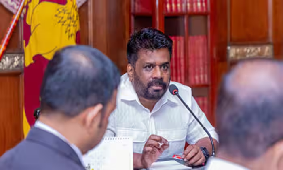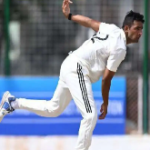Sri Lanka’s newly elected Marxist-leaning President Anura Kumara Dissanayake has secured a parliamentary majority, official election results confirmed on Friday, reported AP. The victory grants Dissanayake’s party a strong mandate to push forward his economic revival agenda.
According to the Election Commission’s partial results, Dissanayake’s National People’s Power Party secured at least 123 seats out of the 225 seats in parliament. While the opposition party Samagi Jana Balawegaya, also known as the United People’s Power Party, led by Sajith Premedasa, managed just 31 seats.
Elected on September 21, Sri Lanka’s President Anura Kumara Dissanayake won amid widespread dissatisfaction with traditional political parties that have led the country since independence in 1948.
While he received only 42% of the vote, raising doubts about his party’s performance in the upcoming parliamentary elections, his party’s support surged soon after he took office. In a surprising shift in Sri Lanka’s political landscape, Dissanayake’s party not only won in the Jaffna district—an ethnic Tamil stronghold in the north—but also gained significant support in other minority-dominated areas.
The victory in Jaffna deals a significant blow to traditional Tamil parties that have held sway in the region since Sri Lanka’s independence.
In Sri Lanka’s 225-member parliament, 196 seats are contested under a proportional representation system, where districts allocate seats to parties based on their share of the votes. The remaining 29 seats, known as national list seats, are distributed to parties and independent groups based on their overall vote percentage across the country.



